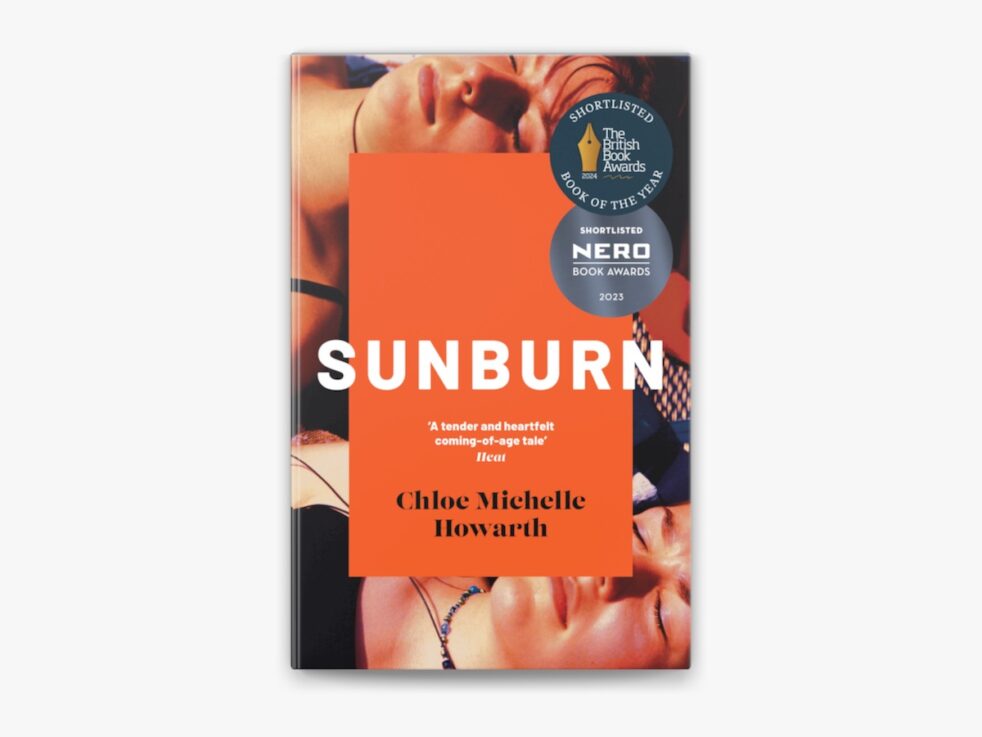Literature has long been an outlet for marginalized voices. Although queer stories have existed since ancient mythology, they have been subjected to censorship and erasure, often being rewritten, silenced or excluded. It’s important, not only during Pride Month, but every month, to share and uplift LGBTQIA+ voices. Here are a few to begin with:
“Sunburn” by Chloe Michelle Howarth
Set in the belly of a small Irish town, “Sunburn” bites into summer’s raw heat. In the early 1990’s, Lucy grapples with her infatuation with her friend Susannah, and what begins as a quiet flirtation quickly spirals into all-consuming love. Lucy must confront the realities of the life expected of her: marrying her best friend, Martin, and becoming another generation of women mired in Crossmore. Through it all, she withstands the internal and external shame of being queer in her Catholic town.
Haworth’s book began to take shape during the pandemic, and she described writing it as a “way of keeping in touch with [her] queerness”. Although it’s her debut novel, “Sunburn” has captured the attention of both readers and critics alike. The prose is heavy and languid, fluidly melding desire and reverence into something else entirely. Grappling with religion, family and friendship, “Sunburn” is not your average beach read; it’s a story of diverging choices and bitter truths. If you’re looking for a realistic, moving novel with devastating lines, this book is for you.
“Notes of a Crocodile” by Qiu Miaojin, translated by Bonnie Huie
In the throes of 1980’s Taiwan, the nameless protagonist, nicknamed Lazi, narrates self-exploration and heartbreak found in her early 20s. Although haunted by the shadow of the author’s abrupt suicide at age 26, “Notes of a Crocodile” is exalted as a significant work of both Taiwanese and queer literature.
Traversing through eight diaries, the narrative interchanges between Lazi’s story and the perspective of an anthropomorphic crocodile forced to assume a human suit. A mix of musings and vignettes, the novel plunges the reader into Lazi’s intimate thoughts and philosophical abstractions, with the crocodile encompassing the lonely, splintering nature of queer identity in an unaccepting society. The prose is cyclical and vicious as Lazi rips deep into the shame entangled with her lesbian identity and fear of rejection. Punctuated with wry commentary on gender, adolescence and societal expectations, the novel is a thought-provoking read. This book is perfect for anyone amidst the intensity and loneliness of new adulthood.
“On a Sunbeam” by Tillie Walden
“On a Sunbeam” traverses both space and identity through a haze of deep blues and purples. Originally a webcomic, the graphic novel follows Mia, the newest crew member on the spaceship Aktis, as she floats adrift in her own life. But in this future of conquered space, flying from planet to planet for repair jobs, Mia finds both a community and reconciles with her past. The blue-tinged flashbacks reveal Mia’s childhood at boarding school and the abrupt end of her first love, which ultimately collides with the present. The book doesn’t expound on the struggles many queer people grapple with; instead, being queer is an accepted part of the world.
“On a Sunbeam” is beyond a love story. It’s about found family and discovering your place, all narrated through the tint of Walden’s color, distinctive and brimming with nostalgia. It’s about finding yourself, even when lost in space, and returning home through the people that define it. This book is a perfect late-night read, tender and uplifting all at once.
“The Year of Blue Water” by Yanyi
In “The Year of Blue Water,” identity isn’t singular. A seamless weaving between prose and poetry, Yanyi deftly tackles queerness in intersection with family, immigration and mental illness. In 2018, the collection received the Yale Series of Younger Poets Prize and was a finalist for the Lambda Literary Award for Transgender Poetry.
There’s no question that Yanyi’s personal experiences have shaped the intimacy of his writing. It’s a confessional, skinned, narrating denial of both the body and the intangible that rests deeper within it. The journey for identity isn’t confined to the author’s transness; it’s just a sliver of the whole picture. The continuous mention of his friends, whose names echo throughout the poems without introduction, lets the reader slide gently into Yanyi’s thoughts like a trusted confidant. Although his work broaches difficult subject matters, Yanyi’s faith in his community and in his friends offers blistering relief. “The Year of Blue Water” is perfect for readers searching for a poetry collection that is both lyrical and fiercely honest.
